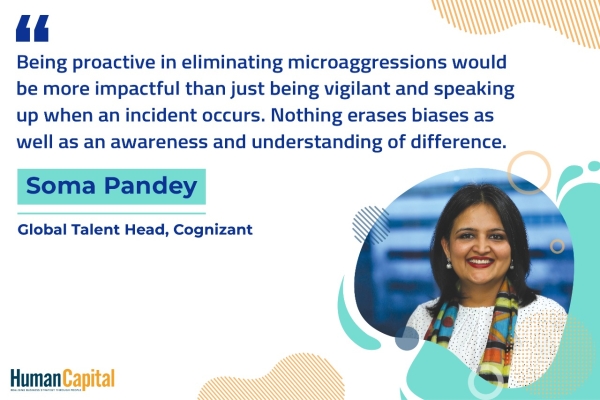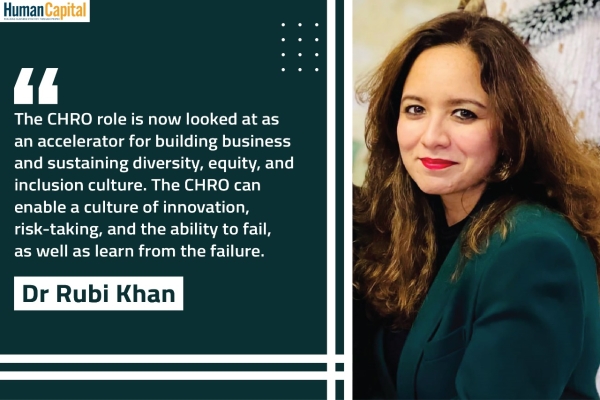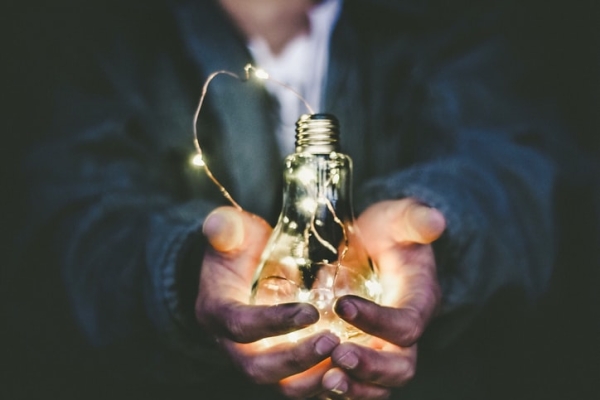Microaggressions are those unthoughtful statements, questions, or behaviour that stems from some intrinsic bias towards people with certain characteristics and are difficult to pinpoint because they are not overtly malicious, or even obvious.
“It ain’t what you don’t know that gets you into trouble. It’s what you know for sure that just ain’t so.” ~Mark Twain
When Mark Twain said that, he may as well have been speaking about how some of us feel when a joke or comment or behaviour that was innocuous and intended as harmless fun comes back to bite us. What we knew was ok, or was only some harmless bit of fun is no longer so. We then feel confused and react negatively at how “political correctness” (PC) is taking over and making our lives difficult with such high expectations around “correct behaviour”.
But it need not be so stifling.
Let us examine the uncomfortable, yet extremely important topic of “micro-aggressions” and through understanding and thoughtfulness let us ‘Break the Bias’- not just in the gender context, but across all diversity dimensions.
What?
Microaggressions are those unthoughtful statements, questions, or behaviour that stems from some intrinsic bias towards people with certain characteristics and are difficult to pinpoint because they are not overtly malicious, or even obvious. The aggressor might not even be conscious of doing anything. And therein lies the problem – their comments or behaviour could be easily overlooked by almost everyone except the persons who are impacted by it.
For instance,
• Asking a woman in a meeting to take notes or arrange for food and beverages even if that is not part of her job description
• Asking an Indian where they learnt such good English
• Not being able to pronounce a name from a different culture because it is too difficult
• Assuming that a younger person cannot be the leader of a group
These are all everyday occurrences and seem so insignificant at times. Many of us may have experienced some of these either as the aggressor or a victim.
Such conduct may not appear to be a “big deal”. The aggressor might hardly be aware of committing even the slightest transgression and would probably take offence at being called out, and yet they leave the victim feeling alienated, isolated, upset, and stressed. In addition to the individual consequences of microaggressions, it is easy to imagine how the work culture and performance of a team might suffer if such behaviour is prevalent and not checked in an organisation.
Why?
Microaggressions are called that because they exist in little corners of our minds and are projected almost without our knowledge. They stem from assumptions that have formed in our minds about people who are different from us – either consciously through experiences we had, or unconsciously through stories and assumptions we picked up from people around us throughout our lives. Some of these biases are intrinsic and subliminal - and yet so harmful and prejudicial to parts of society that someone has to call them out so that people can take another look, learn and change.
What can we do?
The answer obviously is not to ignore the problem because we feel stuck and confused, nor is it to withdraw oneself from interactions with people who are not like us. That would only worsen the problem of segregation and stereotyping. No one benefits from monochromatic, homogenous groups. We need diversity. Hence, we need to eliminate microaggressions (among other biases and dysfunctions) Here is a 3-point programme to keep in mind in the context of microaggression – whether we are at the receiving end of it, observe it, or get “called out” for it as an aggressor.
• Acknowledge
• Learn
• Advocate
Acknowledge
The fact is that all of us have biases and we are usually blind to them unless we come face to face with them in certain situations. Human beings have been so successful as a species because our brains make meaning of the world through pattern recognition. To deal with the enormous number of stimuli that reach us, our brains fit them into “stereotypes” by making certain assumptions – including about people. Some of these assumptions are likely to be wrong. And when our behaviour is driven by these stereotypes, they may manifest as biases and microaggressions. We should accept this as a human condition that none of us is free from.
On the other hand, acknowledge also, that microaggressions are real and they cause real damage. Remember that intent does not supersede impact.
Therefore, if an action causes hurt in another – the best thing to do is to acknowledge that the pain is real and offer a sincere apology. As a victim or an observer, it would be desirable to speak up and acknowledge that something happened which caused pain, without getting offensive to the aggressor.
Learn
Acknowledging that we are biased or issuing an unequivocal apology, is not the end – it should ideally be the beginning of a journey of learning and education.
Sometimes just listening to another person’s concerns with genuine empathy could go a long way in keeping our actions and words aligned with our espoused ideology. There are several resources like books, TV shows, movies, podcasts, etc., that can be accessed to learn about the different socio-cultural norms of people around us.
Learning, reflecting on, and sharing about ourselves and others, whether we are the victim, the aggressor, or observer, is important for education.
Advocate
Good intentions and strong insights are not enough to make lasting change. Hence, taking action is important. Speak up for marginalised communities.
Being proactive in eliminating microaggressions would be more impactful than just being vigilant and speaking up when an incident occurs. Nothing erases biases as well as an awareness and understanding of difference. Educate others about microaggressions and biases. Advocate for programs that encourage crosscultural/linguistic communication and celebrate differences. An understanding of the existence and impact of microaggressions comes from an honest desire to ensure that our colleagues and friends are comfortable in the workplace, feel welcome, and do not face subliminal prejudicial behaviour.
Hopefully, this article encourages us to feel more open to acknowledging the biases in some of our own and others’ behaviour, that are so intrinsic that we are blind to them, and be willing to take time to educate ourselves and have the courage to take appropriate action.
That incident where we might have slipped can be used to emerge a better person or a kinder person. We need to remember that there is a reason why political correctness was invented – to ensure that rough edges of social interactions are smoothened.
True empathy and understanding will help us behave better and our social spaces – both virtual and physical - would be that much more welcoming and allow all diverse perspectives to thrive.
Has COVID-19 forever changed the way we live and work?
Trending
-
SBI General Insurance Launches Digital Health Campaign
-
CredR Rolls Out 'Life Happens' Leave For Its Employees
-
Meesho Announces 30-Week Gender-Neutral Parental Leave Policy
-
Microsoft Unveils Tech Resilience Curriculum To Foster An Inclusive Future
-
60% Indian Professionals Looking For Job Change Due To COVID: Survey
-
SpringPeople And Siemens Collaborate For Digital Transformation Push
-
86% Professionals Believe Hybrid Work Is Essential For Work Life Balance: Report
-
Almost 1 In Every 3 People's Personal Life Affected Due To Work Stress
-
Meesho Rolls Out Reset And Recharge Policy For Employees
-
80% Of Talent Leaders & Academics Say Pandemic Changed Skill Needs For Youth: Report
-
Hero Electric Rolls Out 'Hero Care' Program For Employees
-
Human Capital In Collaboration With ASSOCHAM Hosts Virtual Conference
-
IKEA India, Tata STRIVE Collaborate To Create Employability And Entrepreneurship Opportunities
-
SAP India, Microsoft Launch Tech Skilling Program for Young Women
-
DXC Technology, NASSCOM Collaborate For Employability Skills Program
-
Lenskart To Hire Over 2000 Employees Across India By 2022
-
Mindtree Launches Learn-and-Earn Program
-
Tata AIA Extends 'Raksha Ka Teeka' To Its Employees
-
Swadesh Behera Is The New CPO Of Titan
-
NetConnect Global Plans To Recruit 5000 Tech Professionals In India
-
Hubhopper Plans To Hire 60% Of Indian Podcasters By 2022
-
Corporate India Needs More Women In Leadership Roles: Report
-
Aon to Invest $30 Million and Create 10,000 Apprenticeships by 2030
-
Tech Mahindra Launches ‘Gift a Career’ Initiative for Upskilling of Youth
-
40% Women Prefer Flexible Working Options in Post-COVID World: Survey
-
3 out of 4 companies believe they can effectively hire employees virtually: Report
-
Vodafone , CGI and NASSCOM Foundation launch digital skills platform
-
Odisha: Bank, postal employees to deliver cash for elderly, differently-abled persons
-
Skill India launches AI-based digital platform for "Skilled Workforce"
-
Hiring activity declines 6.73% in first quarter: Survey
-
70% startups impacted by COVID-19 pandemic
-
Bajaj Allianz Life ropes in Santanu Banerjee as CHRO
-
Over 70 Percent MSMEs look at cutting jobs to sustain businesses
-
93 Per Cent employees stressed about returning to office post-lockdown
-
Johnson & Johnson India announces family benefits for same gender partners
-
Indian firms turning friendly towards working mothers
-
Welspun India names Rajendra Mehta as new CHRO
-
Wipro partners with NASSCOM to launch Future Skills platform



Human Capital is niche media organisation for HR and Corporate. Our aim is to create an outstanding user experience for all our clients, readers, employers and employees through inspiring, industry-leading content pieces in the form of case studies, analysis, expert reports, authored articles and blogs. We cover topics such as talent acquisition, learning and development, diversity and inclusion, leadership, compensation, recruitment and many more.
Subscribe Now












































Comment